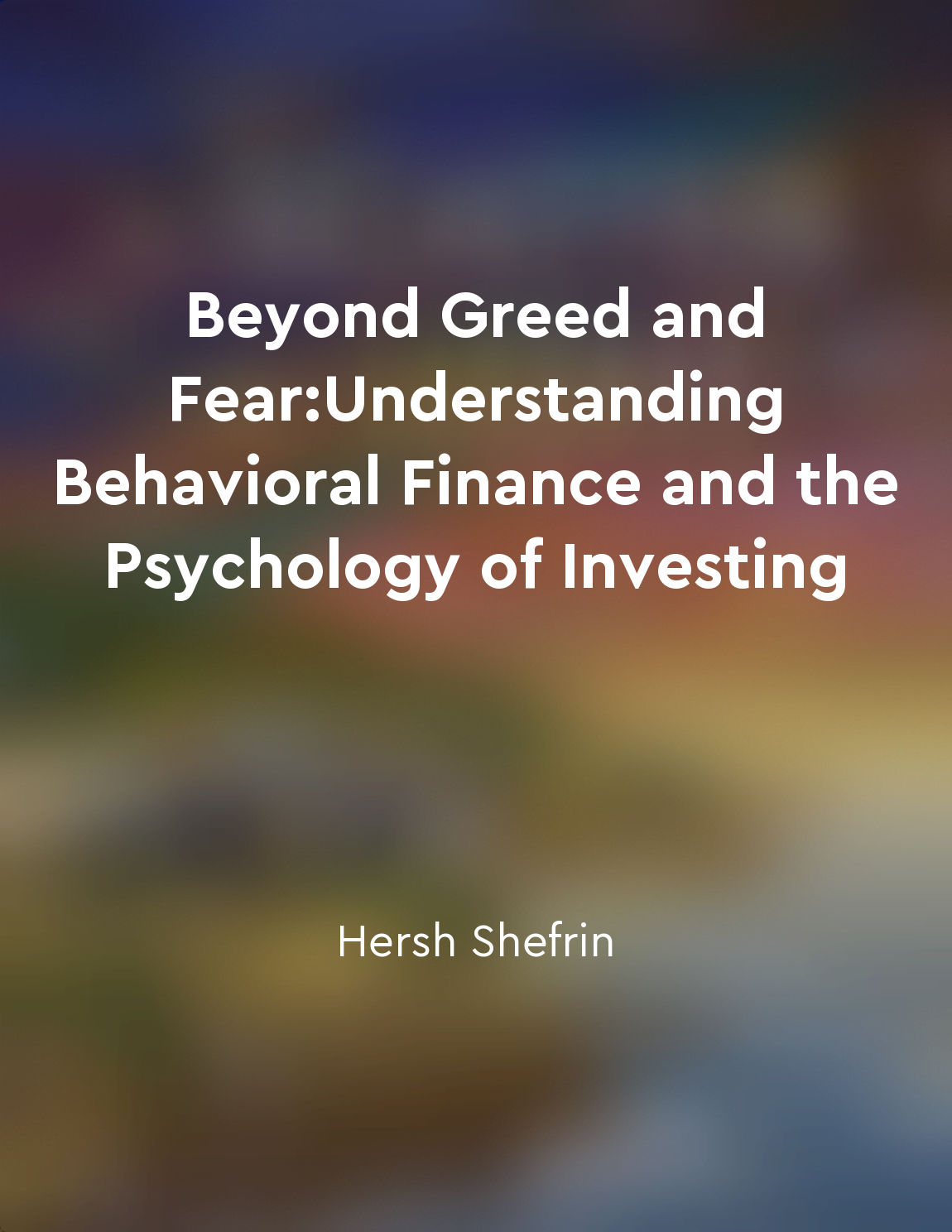The euphoria of rising asset prices masks underlying vulnerabilities in the financial system from "summary" of A Short History of Financial Euphoria by John Kenneth Galbraith
The euphoria that comes with rising asset prices often leads to a sense of invincibility among investors. As the value of their assets continues to climb, they become more and more convinced of their own financial acumen and foresight. This feeling of infallibility can blind them to the underlying vulnerabilities in the financial system that may be fueling the asset price increases. During times of euphoria, investors tend to overlook warning signs and dismiss any concerns about the sustainability of the market boom. They become caught up in the excitement of the moment and lose sight of the bigger picture. This can create a dangerous feedback loop where rising asset prices only serve to reinforce the euphoria, further masking the vulnerabilities in the system. It is only when the market inevitably corrects itself that these vulnerabilities are exposed. Sharp declines in asset prices can quickly wipe out gains and expose the weaknesses that were previously hidden by the euphoria. The same investors who were once riding high on the wave of rising prices are now left scrambling to protect their investments and limit their losses. The aftermath of a financial euphoria is often characterized by panic selling, widespread losses, and a general sense of disillusionment among investors. The same assets that were once seen as sure bets are now viewed with suspicion and skepticism. It is during these moments of reckoning that the true extent of the underlying vulnerabilities in the financial system becomes apparent. In the end, the euphoria of rising asset prices can only mask these vulnerabilities for so long. Eventually, reality catches up with speculation, and the consequences of unchecked optimism are laid bare for all to see. The key is to remain vigilant and skeptical in the face of market exuberance, and to always remember that what goes up must eventually come down.Similar Posts

Reduce unnecessary expenses
To survive and thrive in a deflationary depression, it is imperative to cut back on unnecessary expenses. This concept is cruci...

The importance of setting clear investment goals
In order to achieve success in investing, it is essential to establish clear and specific investment goals. These goals serve a...

Market euphoria can cloud judgment
When investors become overly optimistic and caught up in the excitement of a booming market, their judgment can become clouded....
Patience is key in wealth accumulation
In the world of investing, there is a common saying that "patience is key in wealth accumulation." This idea is not just a clic...
Intelligent investing is a thoughtful and deliberate process
Intelligent investing requires a disciplined approach that is rooted in careful analysis and reasoning. It is not a hasty or im...

Social factors impact investment decisions
Investment decisions are not made in a vacuum. They are influenced by a myriad of social factors that can sway an individual's ...
The Daoist philosophy can be applied to finance
The Daoist philosophy offers a unique perspective on how to approach finance, emphasizing the importance of harmony, balance, a...
Need for collective action to address issues
The challenges we face today are too big for any one individual to solve alone. From climate change to income inequality, these...
Businesses faced bankruptcy
The most devastating consequence of the stock market crash of 1929 was the wave of bankruptcies that swept through the business...
The impact of the crisis on ordinary Americans
The crisis had a profound effect on ordinary Americans, as their lives were turned upside down by the collapse of the housing m...
